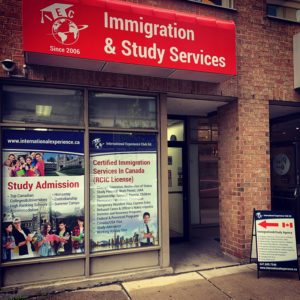Post-Graduation Work Permit

Post-Graduation Work Permit
The Canadian International Student Program has gained tremendous popularity in recent years. Since 2018, Canada has remained in the top 5 best international study destinations. Thus, the number of post-graduation work permits holders has also skyrocketed from 95,455 in 2014 to 186,055 in 2018. This is due not only to Canada’s reputation for high quality education, but also to the country’s generosity for study-related work facilities.
Similarly, many potential immigrants have identified that their studies abroad can also be a path for many work opportunities and potentially to permanent residence as well. In fact, from 2017 to 2018, the number of individuals who were admitted as permanent residents after having a study permit increased by 20%. In addition, immigrants with Canadian education and work experience are highly valued in the different programs under economic immigration class.
The Post-Graduation Work Permit (PGWP) allows international students to obtain an LMIA-exempt, open work permit for up to three years. This is a great advantage since students do not need to have a valid job offer as part of the requirements. In addition, the length of the permit is determined by the length of the study program, which has to be of at least 8 months. A potential student should also plan ahead of time if their goal is to obtain a PGWP after the completion of their schooling. First, when planning to study in Canada, the first step is to make sure that the potential school(s) is a Designated Learning Institution (DLI). Second, not all these institutions will make a student eligible for a potential Post-Graduation Work Permit. To review a list of DLIs that offer programs eligible for PGWP, please refer to the following list here.

Once a program has been properly identified and the international student successfully arrives in Canada, they must actively pursue their program and remain enrolled while respecting scheduled breaks. Note that only full-time academic programs are eligible. Any unjustified break or leave could cause future issues when determining if an individual is eligible for a PGWP. Certainly, a series of important decisions start with identifying the best study program and learning institution. Not only is this a big investment, but also applicants should keep in mind that a Post-Graduation Work Permit can only be received once in their lifetimes.
With regards to the application process, once a student has finished their schooling, they have up to 180 days to apply for a Post-Graduation Work Permit. In order to do so, the applicant needs to apply while still holding a valid study. If the student was already working while in school, they can continue to work on implied status until a decision is made with regards to their PGWP. This allows for a smoother transition from student to worker without necessarily having to terminate an employment due to a lack of work authorization. As long as a student has respected the program commitments and has successfully completed the program, gathering documents to support their PGWP application should not be an issue. Transcripts, diplomas and official letters from the school are amongst the important supporting documentation to submit.
If the student is in Canada and decides to leave the country while waiting for a decision, they must be mindful that a valid visitor visa or eTA are always required to re enter the country. Despite the location, applicants can request a Post-Graduation Work Permit from inside or outside of Canada as long as they are eligible. Potential students have to be mindful of the type of institution they choose, the length of the program and its requirements. These factors will be decisive when applying for a Post-Graduation Work Permit in the future.
Regards,
International Experience Club

